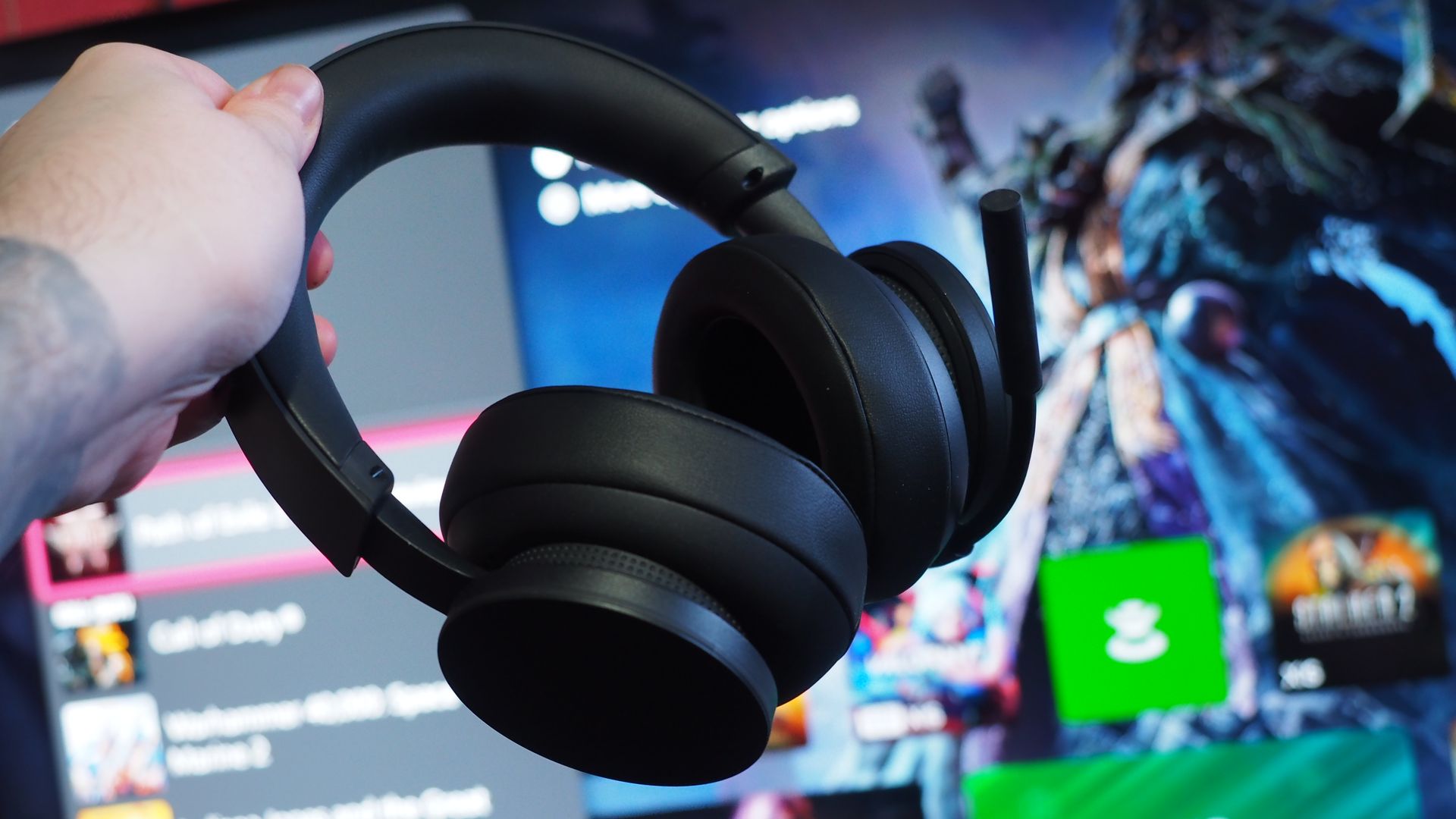Windows Central Verdict
The Xbox Wireless Headset is generally a capable entry-level wireless option for those who want something simple and "no frills" that delivers well across all the basics. It has good audio but not spectacular, a decent mic experience but not incredible, and is adequately comfortable. The app and configurability of the headset is solid. It's let down a bit by its limited size adjustability, and the Bluetooth signal seems at least a little susceptible to interference from its own 2.4 GHz Xbox wireless signal. Generally speaking, though, this is a decent option for those who want the basics without breaking the bank. It's definitely better than its predecessor.
Pros
- +
Surprisingly good audio and bass for its price, with "free" Dolby Atmos
- +
Decent mic experience with clear sound delivery
- +
Comfortable earcups
- +
On-ear controls have good action
Cons
- -
Volume increments are too large, making mix balance tricky
- -
Bluetooth signal is a bit sensitive to disruption
- -
A bit small for larger heads
Why you can trust Windows Central
I wasn't a big fan of the original Xbox Wireless Headset. In our previous-gen Xbox Wireless Headset review, audio quality issues was a bit point of frustration, even if most of the other features were quite capable overall.
It was a bit of an innovator of its era, though, living among the first headsets that sought to combine Bluetooth audio signal mixing with your Xbox console. However, as we head into 2025, pretty much every headset has copped the Xbox Wireless Headset's unique selling point.
Now, the new 2024 Xbox Wireless Headset offers no-frills, pure value above all. It's a good reference for manufacturers, as in what the "baseline" wireless Xbox headset experience should be: decent audio, capable mic, comfort-promoting materials, and cross-platform capabilities.
But is it among the best Xbox headsets to actually buy when there are so many other options out there now? Honestly, the answer is an emphatic yes.
With much-improved audio tuning, maturing software, and seamless connectivity, this is as "no-nonsense" as you can get with a gaming headset. But, like any headset, it's by no means flawless. Let's review the new 2024 Xbox Wireless Headset.
Recent updates
UPDATE (Dec 16, 2024): Updated this article with the latest stock information and improved spec sheet run down.
Disclaimer
This review was conducted with an Xbox Wireless Headset unit provided by Microsoft. Microsoft didn't view the contents of this article before publication.
Xbox Wireless Headset (2024): Specs & Price
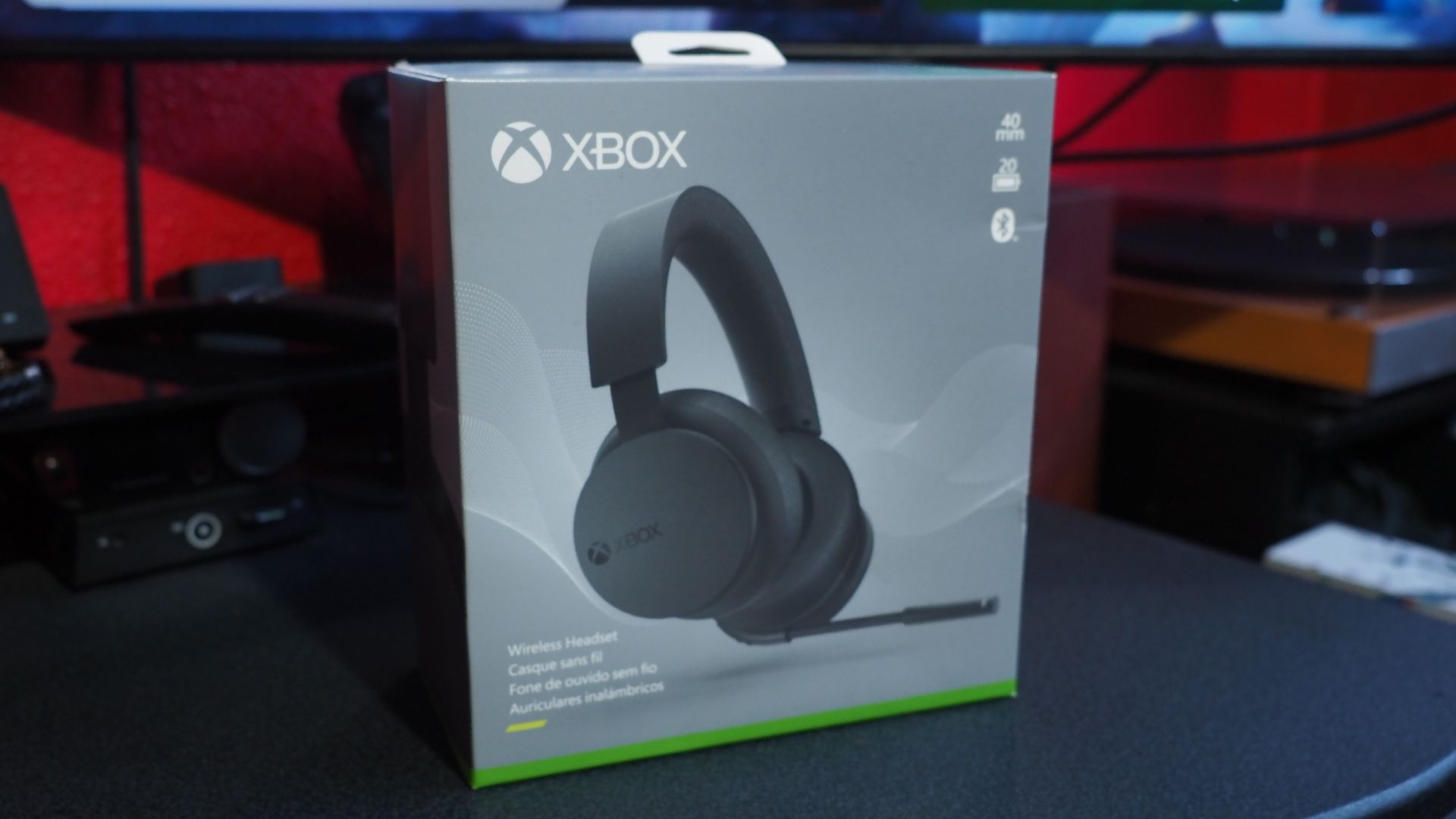
For what's on offer, the Xbox Wireless Headset ultimately offers a good price point, although it is $10 more expensive than its predecessor.
Part of that extra cost might be the "free" Dolby Atmos certification, which allows you to inject software-side surround sound via compatible Xbox Series X|S, Xbox One, or Windows 10+ PCs. It's much cheaper than paying Dolby's absurd monthly subscription, though.
For $110, you get Bluetooth 5.3 sound source mixing with onboard direct-to-Xbox wireless 2.4 GHz. There's an included USB-C charge cable giving you up to 20 hours of juice, which is a boost for the 2024 model over the 2020 model.
| Type | Spec |
|---|---|
| Drivers | 40mm drivers |
| Freq. Response | 20 Hz to 20 kHz |
| Connectivity | Simultaneous 2.4 GHz wireless and Bluetooth 5.3 |
| Features | Dual wireless and Bluetooth sound mixing, Dolby Atmos license on-board, leatherette cups, on-mic mute LED indicator, mic monitoring. |
| Compatibility | Xbox One, Series X|S, Windows 10+ PC, Bluetooth devices. |
| Battery Life | ~20 hours |
| Weight | 320 grams |
| Price | $110 |
There's also onboard mic monitoring now, in addition to leatherette cups, which have a premium feel with 40mm standard drivers.
You can connect this to a PC with the USB-C cable or via Bluetooth, but if you want the proper 2.4 GHz signal, right now, it's not looking possible, even with the Xbox Wireless USB dongle. I'm trying to get my hands on one to double check, since mine seems to be broken (RIP.) You can however just grab a USB Bluetooth dongle if your PC doesn't support it, though. They're pretty cheap these days, and might provide a more stable connection than many on-board laptop chips.
As of writing, stock levels are good heading into the holiday season and through 2025. It's the Xbox Wireless Headset for 2024, which is up for around $110 on Amazon.
Xbox Wireless Headset (2024): Features, Design, and Comfort
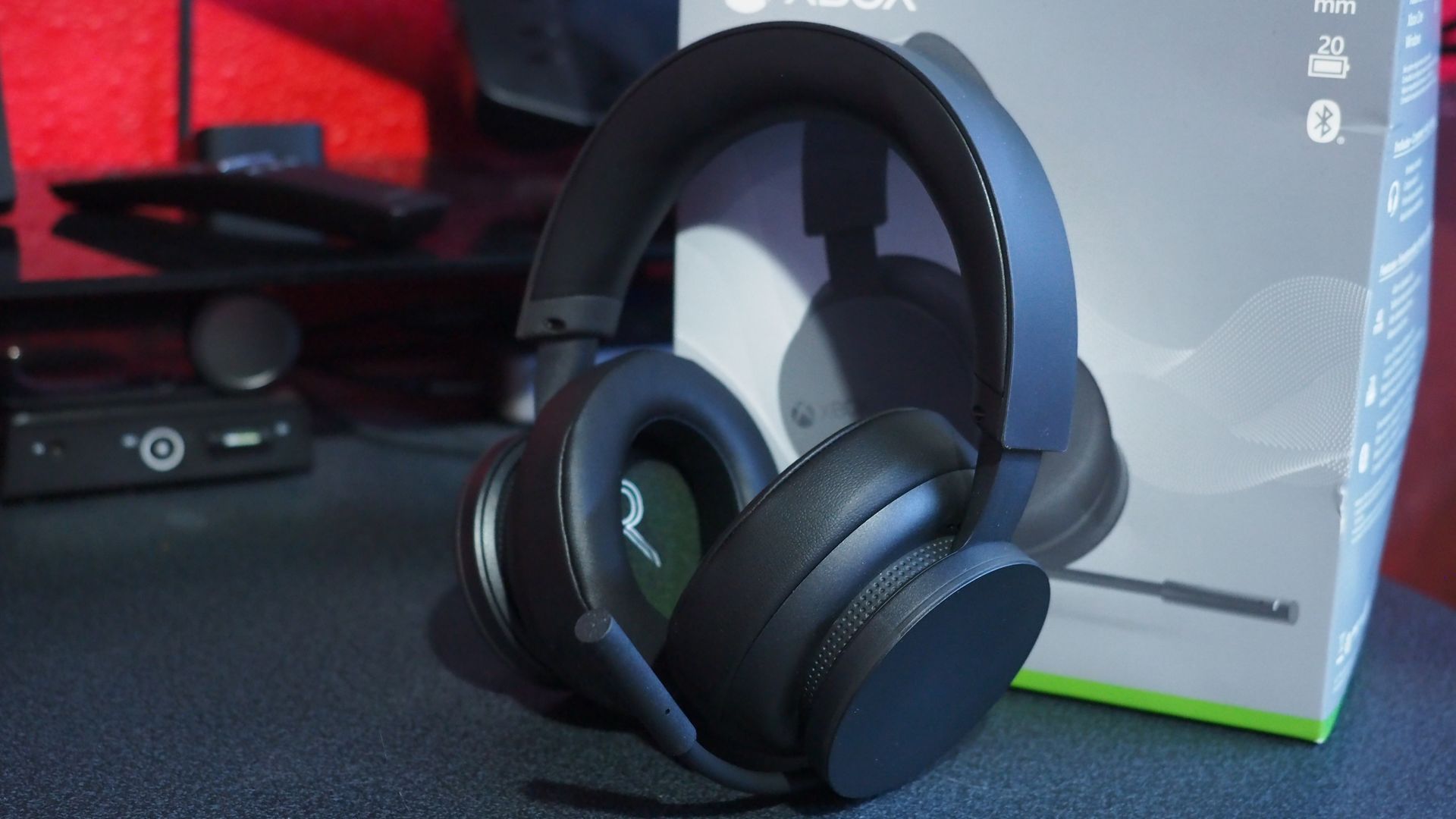
As mentioned, when the Xbox Wireless Headset first rolled around, it was part of the first wave of serious headsets that incorporated Bluetooth directly into the headset. As of 2024 and into 2025, however, that feature set isn't as unique as it once was.
These days, every headset comes with Bluetooth 5.x and above, while mic monitoring and the like have become standardized. Ironically, it's the lack of gimmicks that really makes the Xbox Wireless Headset stand out a bit now. It incorporates (almost) everything you might want in a basic wireless headset option and becomes the tried-and-tested true "entry-level" model it was more than likely designed to be.
The design for the 2024 model is effectively unchanged. Microsoft has dropped the green accents (thank you) for something a little more subtle and modern. Neutral colors have become preferential for headsets over time, as users increasingly seek products that can work in their gaming setups but also potentially when outside with Bluetooth and a connected mobile device. The design of the Xbox Wireless Headset serves that use case well, with its logo taking on a similarly subtle embossed gloss motif rather than something larger and more gaudy. Top marks for design here.
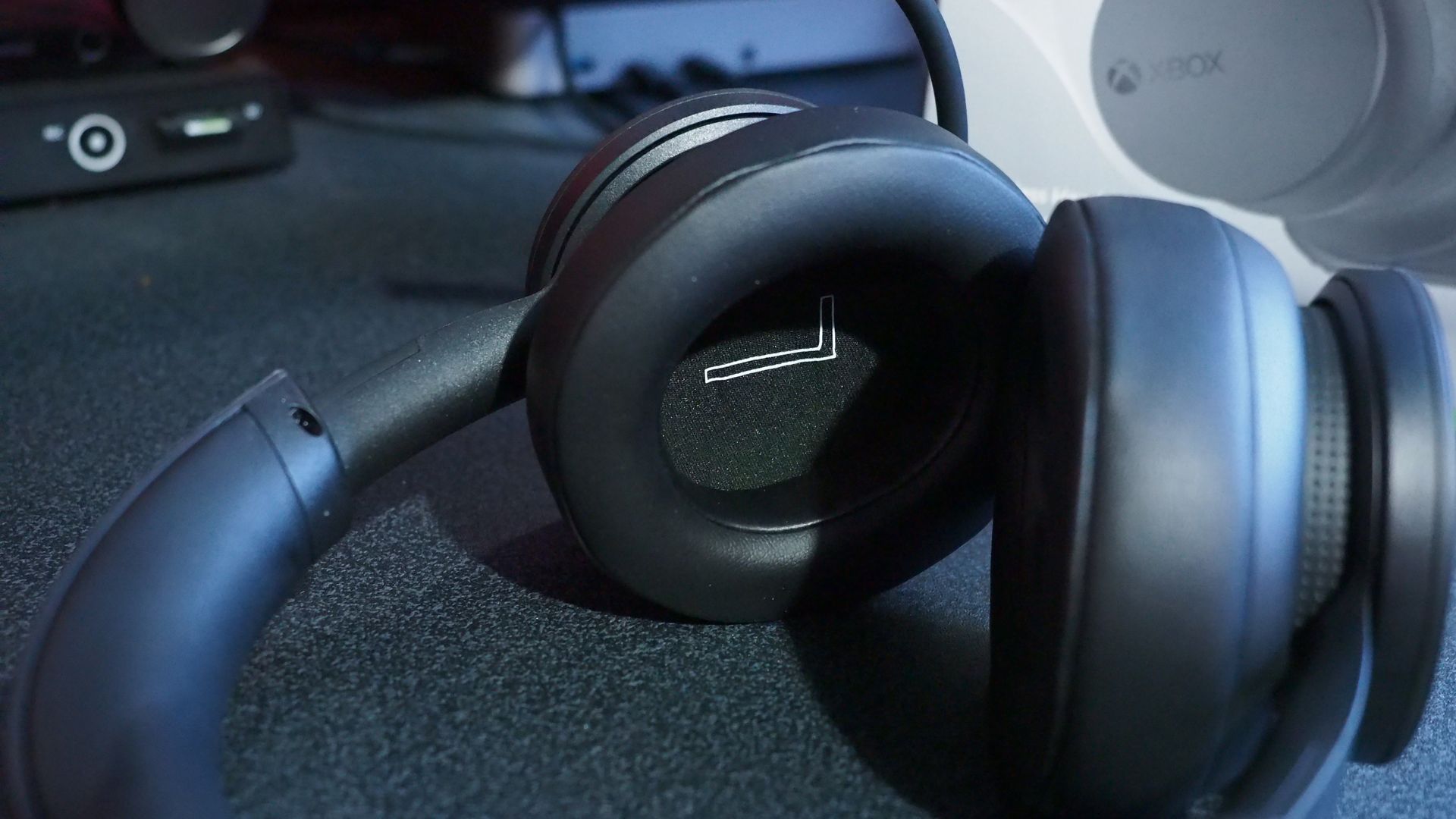
The controls on the ear cups are also well-designed, with large dials on each side for controlling chat mix on the left and volume on the right. One criticism I would leverage at the headset is that its Xbox volume controls are in increments of 10. As such, when mixing in Bluetooth sound, you can essentially go from muted to actually quite loud, drowning out the second sound source. I think this is actually an Xbox limitation rather than the headset itself, potentially, but it's something Microsoft should look at improving. I would rather have adjustable volume increments up to 100 rather than up to 10, especially when you have Bluetooth sound mix capabilities. This would help match it to mobile and PC devices, which do let you control audio on a percentile basis.
One of the headset's other unique features is its auto-mute function. The auto-mute tries to detect when there's significant background noise and just mutes the mic to accommodate it. Depending on your environment, it could be quite a boon for your setup. I had it set to low and found that it worked decently well for preventing unwanted sounds from bugging my friends over comms. You can always disable it if it doesn't work for you, though. It also has mic monitoring on board, with adjustable volumes via the Xbox Accessories app on an Xbox console or on PC via the USB-C cable.
What isn't sold separately is the Dolby Atmos license, which I speculated could be why it's $10 more expensive than yesteryear. The headset will automatically detect that it's Dolby Atmos-certified and allow you to enable software surround via Windows or via the Xbox sound settings menu. I'll discuss how effective it is in the sound quality section next up, though.
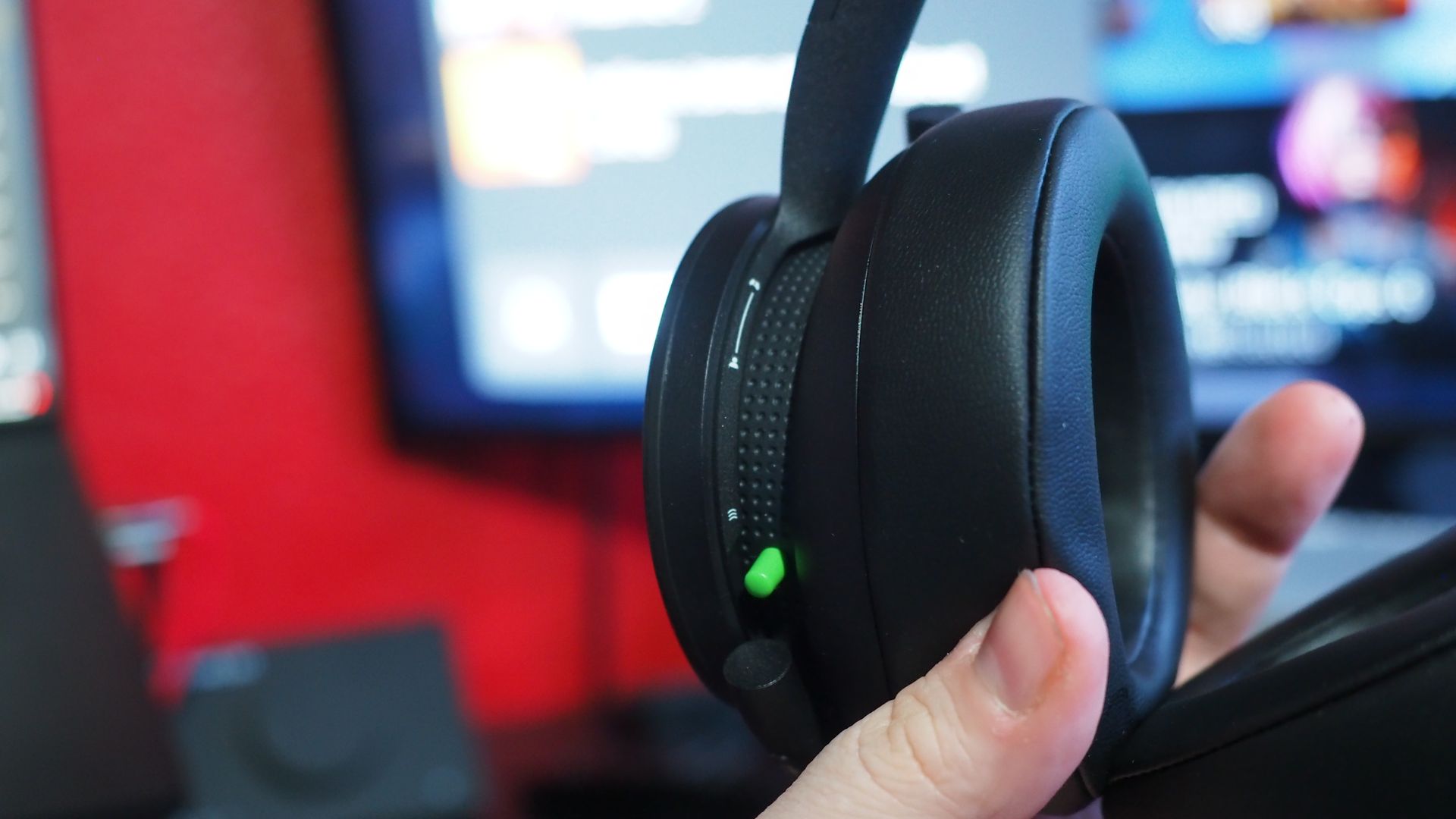
Speaking of quality in general, the Xbox Wireless Headset does have a premium feel on your skin despite being a "budget" option. The leatherette material (which, honestly, every headset should be using in 2024) feels good. The cushioning across the top is good, too, for long sessions. However, I felt like the headset was a bit tight, even on its maximum adjustment. It's likely that it would probably stretch over time to accommodate my markedly prolific bonce, but it's worth being aware of if you're someone who is concerned about smaller, tighter headsets.
Overall, the Xbox Wireless Headset features a good set of functions with adequate comfort for most people, more than likely. What let the headset down previously was the audio quality, which I felt to be a bit middling previously. I had heard they improved the sound quality with updates and tweaks to the EQ, as well as firmware improvements to decrease distortion and things like that. How does it all stack up in practice, though? Pretty well, honestly.
Xbox Wireless Headset (2024): Audio and Mic Experience
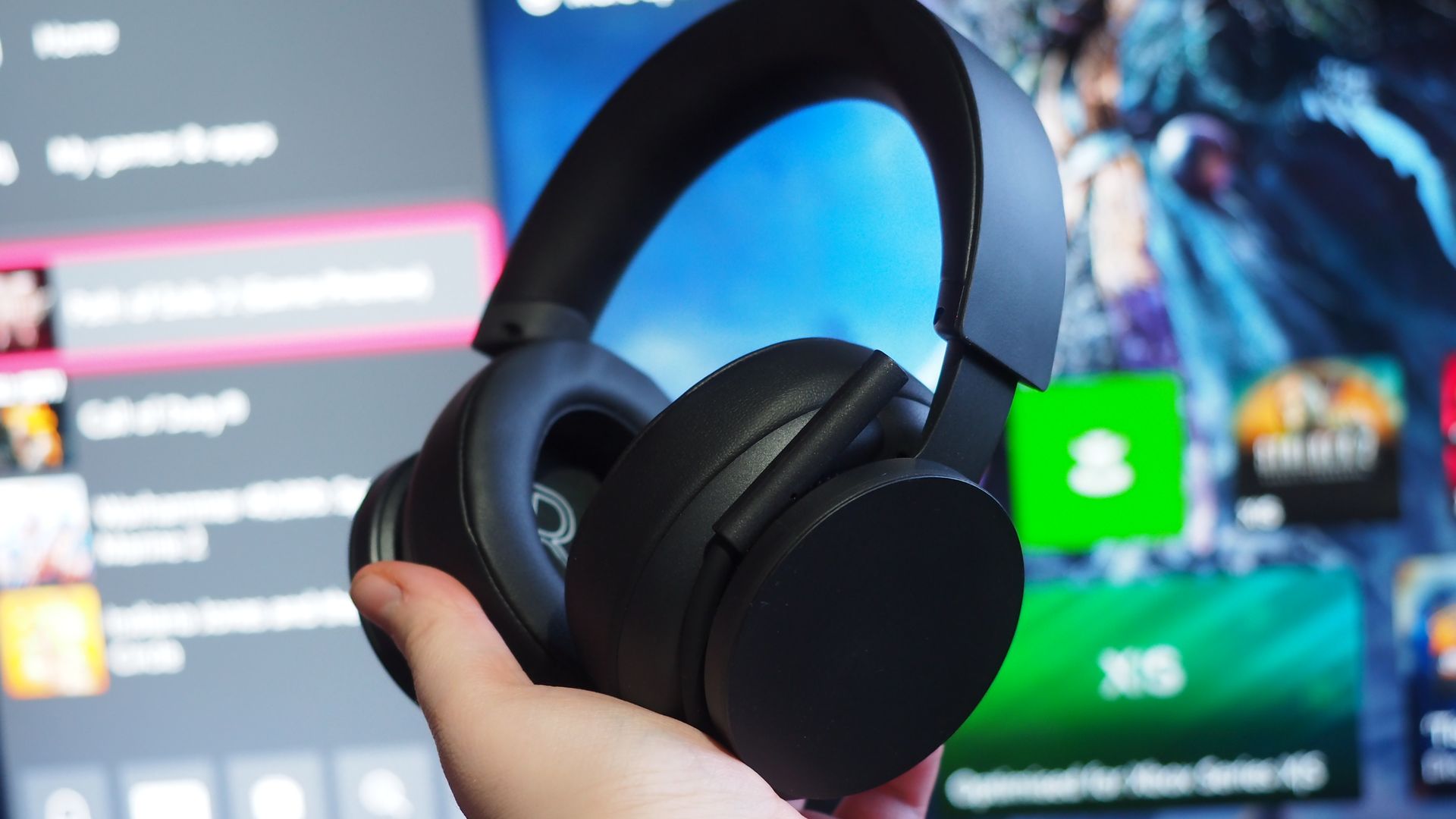
As mentioned, the sound experience on the Xbox Wireless Headset (Gen 1) version wasn't particularly exciting. But what about the Gen 2? I'm happy to report that Microsoft seems to have improved its sound delivery in a positive way here. Sound experiences can often be subjective based on a variety of factors, but there are some definitive improvements I can infer here — although you shouldn't expect to have your mind blown.
Although there is a capable EQ configuration platform you can access with the Xbox Accessories app on Xbox Series X|S or Windows 10 and above, even out of the box, I felt like the Xbox Wireless Headset offered a good soundscape. The bass is warm and adds a cinematic quality, and it can be boosted further using the app if you prefer that vibe. The headset shines in cinematic experiences, such as single-player RPGs or even when listening to music, offering a balanced sound profile out of the box with strong bass. I felt as though the treble was perhaps a bit too pronounced, but it can be easily tweaked if you fancy it. They're ultimately minor complaints that are hardly worth mentioning, potentially, but nothing stands out as particularly impressive either.
I'm a big fan of wide soundscapes and find them to be more immersive. More and more headsets seem to be gunning for 50 or even 60mm drivers, which makes the narrow 40mm here feel a bit anemic on the soundstage side of things. Yet still, they offer good positional awareness with the built-in Dolby Atmos license, which can help you cut through in tactical play in games like Call of Duty: Black Ops 6 and the like.
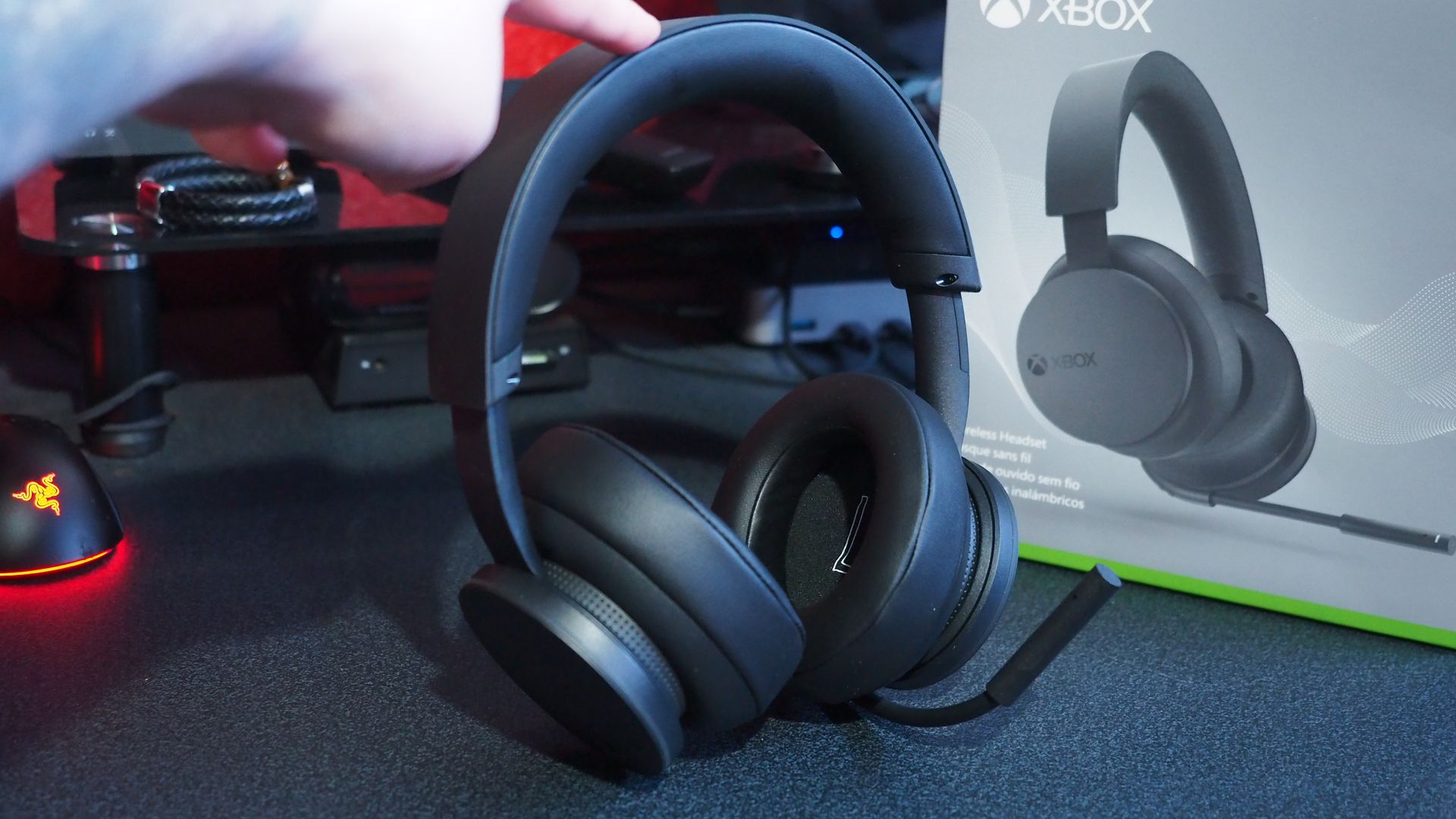
The mic is also decent, if again, perhaps unremarkable. It's highly unlikely you're going to be creating content with this headset, but it might pass for entry-level live streaming or live podcasting. The auto-mute is a nice touch, as noted above, and the mic monitoring on-board is well-tuned. On the higher volumes, though, it does inject noise into the soundstage, which is a bit annoying. Some AI-powered active noise suppression features would've been nice to see here over the auto-mute. It's particularly true, given how much Microsoft bills itself as an "AI" company these days.
It has an LED right there on the mic itself, which indicates when it's actively muted. There's also a mic mute button on the reverse of the mic boom, which is easy to reach. However, I find the position of the LED to be a tad annoying. It's supposed to be easy to see in your peripheral vision, and I suppose it is, but it's distracting a bit because it's on the very periphery of your vision, out of focus. The mic boom could be a little longer to that end. It's also a bit of a miss that the mic isn't detachable or retractable, which makes it look a bit odd as a "lifestyle" headset when used out and about.
You can listen to the above here for an example of the sound delivery, although you might need to disable your adblocker to see the sound embed. Overall, it's a good mic and does the job well, which is ultimately the story of the entire product.
However, there is a key criticism I have to mention here, although it's something that could likely be improved with firmware updates. The headset's Bluetooth signal seems a little sensitive and unshielded from the main 2.4 GHz radio signal. When the headset is engaged on Xbox with its main radio and connected with a second device with Bluetooth, I noticed the Bluetooth signal is susceptible to interference. Other recent Bluetooth-capable headsets I've used like the SteelSeries Arctis Nova Pro, new 2024 Astro A50, or the Turtle Beach Stealth 700 (Gen 3) doesn't have the same issues in the same set up. I have seen these types of issues get repaired with firmware updates, though, so perhaps that's what'll happen here, too. I will say that the interference was infrequent, though, occurring for a few seconds every 30 minutes or something like that. So again, it's not exactly a big deal.
The Xbox Wireless Headset is a tale of no frills, and sometimes that's okay. The price point is right, the audio delivery is good, albeit basic, and the feature set is functional if baseline. It's a good product, offering value as its headline act.
Xbox Wireless Headset (2024): Competition
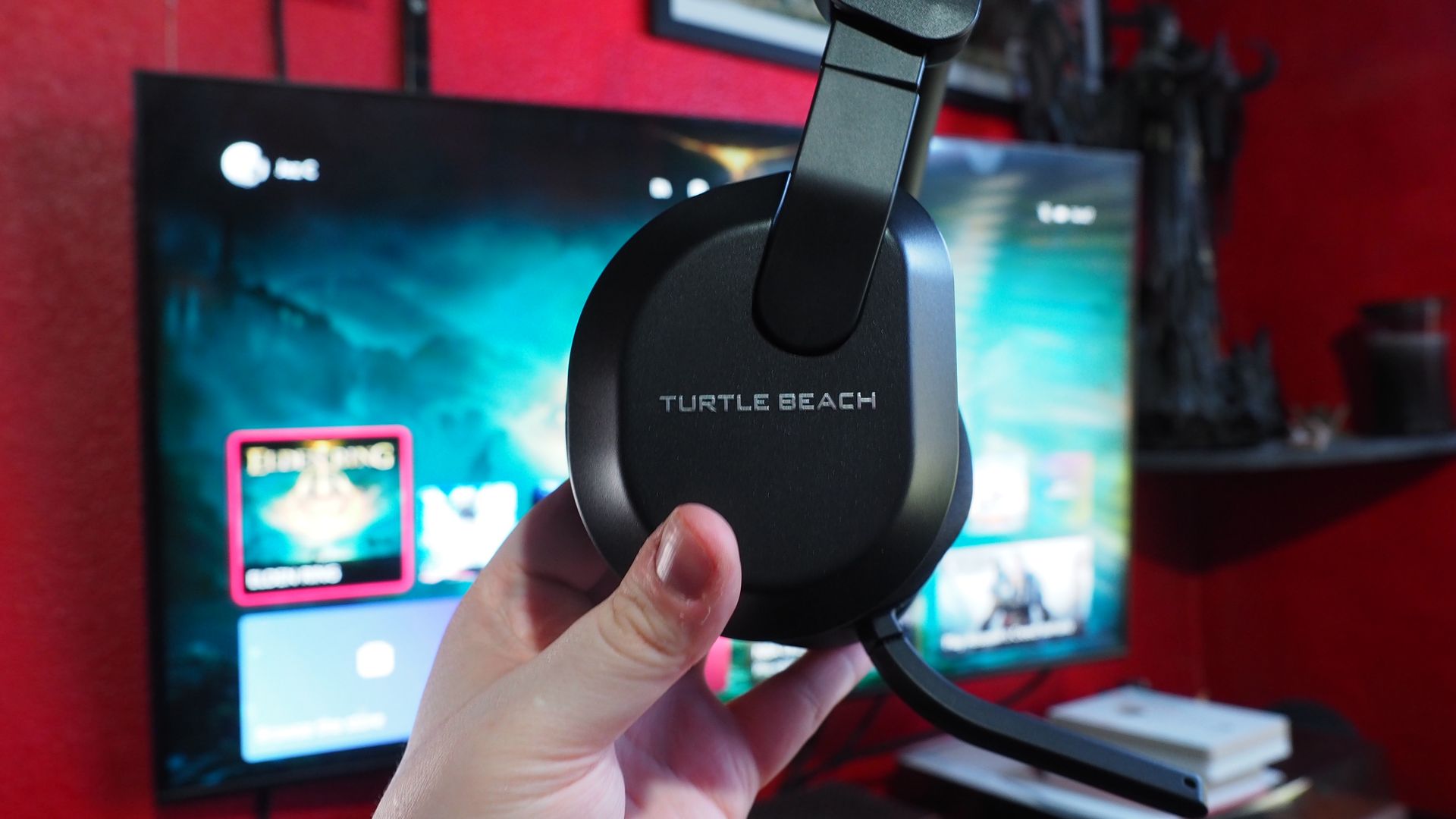
What the Xbox Wireless Headset is offering is a pretty good deal. However, there is also a large variety of great products in the same price range that might be a better, or at least comparable, experience.
The primary competition here is the Turtle Beach Stealth 600 (Gen 3), which was also refreshed in 2024. The Stealth 600 sports a similar feature set but is arguably better value. It's slightly cheaper for one thing and can be paired with multiple devices with either Bluetooth or a USB dongle. However, it doesn't support simultaneous Bluetooth audio, unlike the Xbox Wireless Headset. To get that functionality, you'll have to spend a bit more to get the Turtle Beach Stealth 700 (Gen 3). The Stealth 600 (Gen 3) bodies the Xbox Wireless Headset's battery life, though, hitting 80 hours instead of the middling 20 on offer here.
For those who want to get the most out of the Xbox ecosystem across PC, mobile, cloud, Xbox Series X|S consoles, with simultaneous Bluetooth audio, the Xbox Wireless Headset from Microsoft is certainly among the best options right now. If you don't need simultaneous Bluetooth audio mixing, however, the Stealth 600 (Gen 3) might be a more cost-effective option, particularly if you want something with better battery life.
Xbox Wireless Headset (2024): Should you buy?
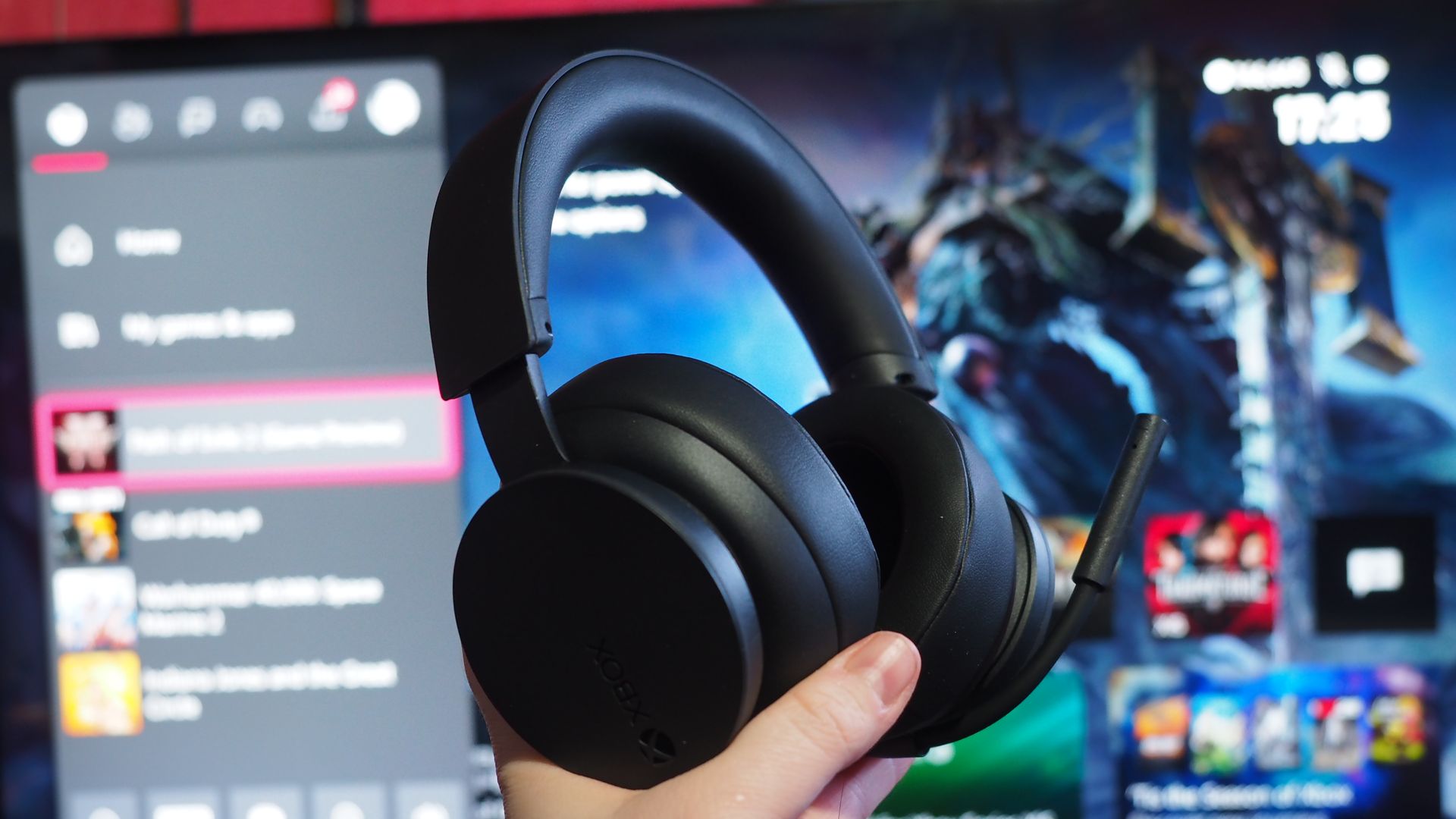
The new Xbox Wireless Headset for 2024 is an unremarkable upgrade over its predecessor for the most part. The inclusion of a Dolby Atmos license is welcomed, and tweaks and refinements like the dropping of the green circular accent are also nice touches too. The soundstage is a bit narrow, but it's well-balanced and offers a good entry-level experience with warm cinematic bass and decent positional awareness in tactical gameplay — you could genuinely do far worse here.
You should buy this if ...
✅ You want a solid headset without breaking the bank.
✅ You need something with Bluetooth capability for going mobile or mixing second sound sources.
✅ You don't need gimmicks or bells and whistles.
You should not buy this if ...
❌ You're looking for top-level sound experience.
❌ You want wireless functionality on PC without Bluetooth.
The app experience is good with the Xbox Accessories program across platforms, with EQ controls and bass control, as well as mic monitoring volume and its auto-mute feature. Real noise suppression would probably have been preferred, though, and it's unfortunate that the mic can't be detached for mobile use, but it's not a deal breaker. It can be tucked away to some degree, after all.
What cannot be tucked away is the Bluetooth sensitivity. It does seem like the signal isn't particularly well-shielded from the main 2.4 GHz Xbox wireless signal, which does seem to lead to some disruption occasionally, but that's potentially something that might be repairable with a firmware update.
Good action on the controls, decent comfort and materials, solid construction, accessible packaging and design, and a solid sound experience across the board make the Xbox Wireless Headset 2024 an unremarkable but meaningful upgrade. This is the king of the entry-level among the best Xbox headsets, as long as you accept its limitations given its "entry-level" price point. I would be interested to see what Microsoft engineers could produce on the high-end someday, too.
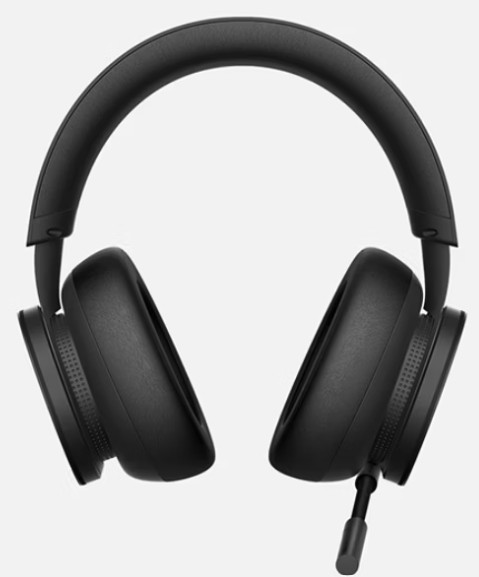
While the Xbox Wireless Headset isn't going to turn heads, it's a very capable entry-level offering that won't disappoint. Solid sound delivery and a good check list of necessary features makes it an inoffensive pick for your first affordable wireless Xbox headset.

Jez Corden is the Executive Editor at Windows Central, focusing primarily on all things Xbox and gaming. Jez is known for breaking exclusive news and analysis as relates to the Microsoft ecosystem while being powered by tea. Follow on Twitter (X) and Threads, and listen to his XB2 Podcast, all about, you guessed it, Xbox!
